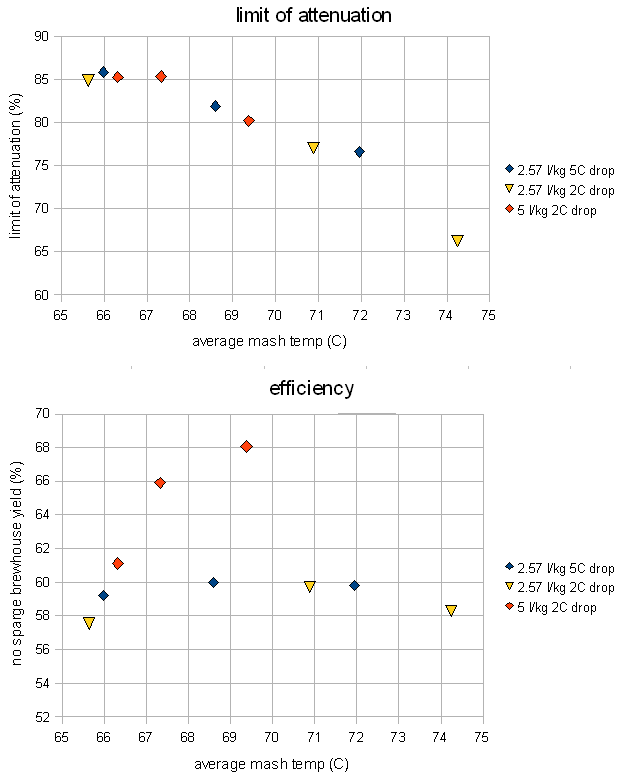I'm new to all grain...basically new to homebrewing but I'm jumping straight into all grain. I have all the equipment I just need to know the finally "detail" on amounts of water to use.
If someone can help out on this. Basically if you are making, say a 7.5 gallon batch, do you trying splitting that in half for each run off? So your first run off will equal 3.75 gallons and your second run off will equal 3.75 gallons?
Here is what I was thinking so correct me if I'm wrong.
7.5 Gal batch
11 lbs of grain
1.25 qt/lbs ratio
0.1 mash absorbtion qt/lbs ratio
Ok here is the math I have.
11 lbs x 1.25 qt/lbs = 13.75 qt
13.75 qt / 4 = 3.4375 gal
11 x .1 = 1.1 gal of mash absorbtion
3.4375 - 1.1 = 2.3375 gallons left
7.5 gal batch size / 2 = 3.75 gal per run off
3.75 - 2.3375 = 1.4125
Add 1.4125 for infusion to bring the 1st run off to 3.75 gallons.
Then add 3.75 gallons to the mash tun for the 2nd run off.
Is this correct or is there something I'm doing wrong?
If someone can help out on this. Basically if you are making, say a 7.5 gallon batch, do you trying splitting that in half for each run off? So your first run off will equal 3.75 gallons and your second run off will equal 3.75 gallons?
Here is what I was thinking so correct me if I'm wrong.
7.5 Gal batch
11 lbs of grain
1.25 qt/lbs ratio
0.1 mash absorbtion qt/lbs ratio
Ok here is the math I have.
11 lbs x 1.25 qt/lbs = 13.75 qt
13.75 qt / 4 = 3.4375 gal
11 x .1 = 1.1 gal of mash absorbtion
3.4375 - 1.1 = 2.3375 gallons left
7.5 gal batch size / 2 = 3.75 gal per run off
3.75 - 2.3375 = 1.4125
Add 1.4125 for infusion to bring the 1st run off to 3.75 gallons.
Then add 3.75 gallons to the mash tun for the 2nd run off.
Is this correct or is there something I'm doing wrong?



